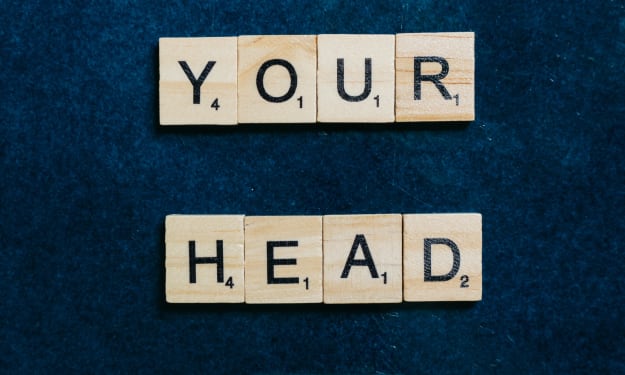The Dark Side of Society - Social Evils
Social Evils and Their Impact on Communities

Society is often seen as a place of safety, comfort, and community, where people can come together to share ideas, form relationships, and work towards common goals. Unfortunately, society also has a darker side, one that is marked by social evils that can tear apart communities and leave lasting scars on those who are affected by them. In every society, there are issues that threaten the well-being of its citizens. These issues are often referred to as social evils, and they can manifest in various forms, including poverty, inequality, discrimination, crime, and addiction. Social evils are not limited to specific countries or regions; they exist in every society and affect people from all walks of life. In this article, we will take a deep dive into the dark side of society and explore the impact of social evils on communities.
What Are Social Evils?
Social evils refer to the problems that plague a society and threaten its stability and prosperity. They can be caused by various factors, including economic, political, and cultural. Some common social evils include poverty, inequality, discrimination, crime, addiction, corruption, and environmental degradation. These issues can have a significant impact on individuals, families, and communities, and they can be challenging to address and resolve.
Some of the Social Evils present in the Society
One of the most pervasive social evils is poverty. In many communities, poverty is a multi-generational problem that affects large numbers of people. Poverty can lead to a host of other social ills, such as crime, drug abuse, and poor health outcomes. Children who grow up in poverty are more likely to struggle in school and have lower life expectancy than their more affluent peers. Poverty is often linked to structural inequality and discrimination, and addressing it requires systemic changes to our social and economic systems.
Another social evil is inequality. Inequality can take many forms, including economic inequality, gender inequality, racial inequality, and more. Inequality often leads to a concentration of power and resources in the hands of a few, while leaving others struggling to get by. Inequality can cause tension and conflict within communities, as those who are left behind feel resentful of those who have more. Addressing inequality requires policies that promote equity and justice, as well as a cultural shift that values diversity and inclusivity.
Violence is another social evil that can have devastating consequences for communities. Violence can take many forms, including domestic violence, gang violence, police brutality, and more. Violence can cause physical harm, but it can also leave psychological scars that can last a lifetime. Violence often arises from a sense of powerlessness and desperation, and addressing it requires a multifaceted approach that includes education, prevention, and intervention.
Drug abuse is another social evil that can ravage communities. Drug abuse can lead to addiction, crime, and poor health outcomes. It can tear apart families and leave individuals struggling to cope with the consequences of their choices. Addressing drug abuse requires a comprehensive approach that includes prevention, treatment, and recovery support.
Finally, corruption is a social evil that can erode trust and undermine democratic institutions. Corruption can take many forms, including bribery, fraud, embezzlement, and more. Corruption often arises when those in power abuse their positions for personal gain, and it can have a devastating impact on the functioning of society. Addressing corruption requires strong laws and institutions that hold those in power accountable, as well as a cultural shift that values honesty and integrity.
The Impact of Social Evils on Communities
Social evils have a profound impact on communities, and the effects can be felt in various ways. For instance, poverty can lead to malnutrition, poor health, and inadequate education, which can affect the well-being of individuals and families. Inequality can lead to social unrest, discrimination, and unrest. Crime can lead to violence, fear, and loss of life. Addiction can lead to poor mental health, social isolation, and financial ruin. Corruption can undermine trust in institutions, reduce economic growth, and undermine democracy. Environmental degradation can lead to ecological disasters, loss of habitat, and reduced access to natural resources.
The Effects of Social Evils on Individuals
Social evils can have a profound impact on individuals, and the effects can be long-lasting. For instance, poverty can lead to poor health, low self-esteem, and limited opportunities. Inequality can lead to discrimination, lack of respect, and a sense of powerlessness. Crime can lead to trauma, fear, and reduced quality of life. Addiction can lead to physical and mental health issues, social isolation, and financial ruin. Corruption can lead to a lack of trust in institutions, cynicism, and apathy. Environmental degradation can lead to loss of livelihoods, displacement, and a sense of loss.
Strategies for Addressing Social Evils
Addressing social evils requires a multifaceted approach that involves various stakeholders. Some strategies that can be used include:
Education: Education can help to raise awareness about social evils and their impact on individuals and communities.
Advocacy: Advocacy can help to bring attention to social evils and promote policies that address them.
Empowerment: Empowering individuals and communities can help to create a sense of agency and promote positive change.
Collaboration: Collaboration among various stakeholders can help to address social evils more effectively.
Innovation: Innovative solutions can help to address social evils more effectively and sustainably.
Conclusion
Social evils are a complex and multifaceted issue that affects communities globally. These problems can have profound effects on individuals, families, and societies, and addressing them requires a concerted effort from various stakeholders. Through education, advocacy, empowerment, collaboration, and innovation, we can work towards creating more equitable, just, and sustainable societies. It is time to shine a light on the dark side of society and work towards a brighter future for all.





Comments
There are no comments for this story
Be the first to respond and start the conversation.